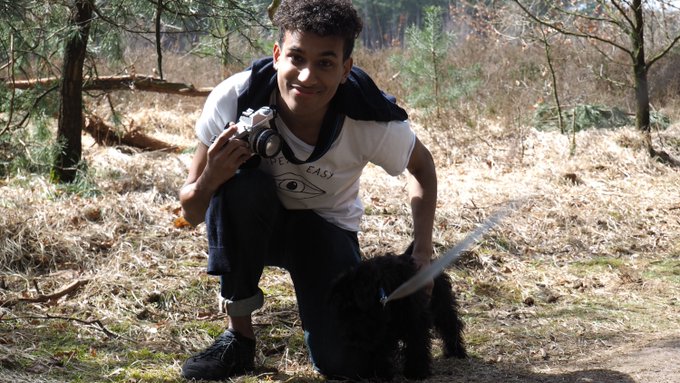The events that led up to the tragic death of Sanda Dia in December 2018 are all too well known for most in Belgium.
The case has also received media coverage in the UK, the US and elsewhere. A 20-year-old boy, son of immigrant parents, thought that joining an elite club at Belgium’s premier learning institution would be his ticket to a prosperous and successful career. In the end, all it led to was an early grave.
Dia, along with two other students, was forced to drink large amounts of alcohol and fish oil, a concoction including live goldfish, mice and an eel, whilst standing in a pool of freezing water surrounded by vomit, urine and faeces. The boys were prevented from drinking any water in order preserve their inebriated state. After hours spent unconscious, members of the Reuzegom group took Dia to the local hospital, his body temperature had dropped to 27.2 degrees. He sadly died of multiple organ failure caused by the high level of salt.
The event itself is shocking enough. But the aftermath and attempted cover up was shameful. Throughout the night various photos and videos were shared on Whatsapp, along with degrading messages about the three undergoing the initiation. Following the death, the group tried to delete the digital trace of what had happened. They also cleaned up the premises where the event had happened in Vorselaar, Antwerp and in Leuven, where they had spent the previous day.
By the time the police showed up, it was completely clean, with no evidence of what had taken place there. The group is infamous and Dia’s death was not the first time it had hit the headlines. They had previously been criticised by animal rights groups after it emerged that members had tortured and killed a pig. The university attempted to introduce a charter to prohibit cruelty to animals and to make initiation ceremonies safer. Reuzegom refused to sign.
More than two years later, no member of the group (or the group collectively) has apologised to the family of Sanda Dia. The punishment handed out by KU Leuven was risible. They were ordered to undergo 30 hours of community service and write an essay about the dangers of initiation ceremonies. The punishment was widely ridiculed.
However, the Rector, Luc Sels, said just last year, “we have taken the right steps”. A backlash from staff and students has now led to the suspension of the 18 students present. A humiliating U-turn by Sels, who has faced calls to resign. For many however, this is too little too late, some of those students have already graduated and so such belated action is meaningless. A criminal investigation concluded that members of Reuzegon be charged with negligent homicide, humiliation, and premeditated administration of dangerous substances.
The trial, due to start in September 2020, was pushed back at the last minute, at the request of the defendants’ lawyers, a move that was criticised by Dia’s father.
To understand the leniency of the punishment so far, one has to understand the elite nature of Reuzegom. Membership was restricted to those who could endure the humiliating nature of the initiation ceremony.
All were the sons of well-to-do Flemish parents. Many previous members have gone on to form the ruling class of Flanders. This is exemplified by the fact that the hearing had to be moved from Antwerp to Limburg, since one of those present at the ritual is the son of an Antwerp judge. The son of the Governor of Antwerp was also a member.
The elitism of the club had bred a sense of invincibility, that they could get away with anything, because of family connections. There was also a racial element to their privilege. Although Dia was not the first black member of the group, it has been alleged that he was subjected to special treatment because of his skin colour. Footage has previously emerged of the group dressed in Ku Klux Klan outfits and berating a homeless person of colour with chants referencing colonial atrocities committed by Belgium in the Congo.
This elitism is not unique to Flanders. In many ways Reuzegom has similarities to the Bullingdon Club at Oxford University, whose previous members include Prime Ministers Boris Johnson and David Cameron. But the way the university has handled the matter has been particularly egregious.
It is worth considering how differently this matter may have been handled if those involved were not the children of lawyers and politicians but those of ordinary Belgians. Would the death of a white student have been handled differently? At a time when “safetyism” is taking hold in universities, where controversial speakers are being no-platformed. Universities ought to prioritise the physical safety of their students.
The way to do this is to clamp down hard when things get out of hand. However, KU Leuven has failed miserably to do this. Its reticence has allowed members of Reuzegom to get on with their lives as though nothing has happened. Their identities are hidden and so far, they have evaded justice. Something has happened though. A young man has lost his life in barbaric circumstances. What happened was not hazing, it was abuse, torture even. After failing to do anything meaningful for two years, Luc Sels should resign. That may be the beginning of a journey towards justice for the family of Sanda Dia.


